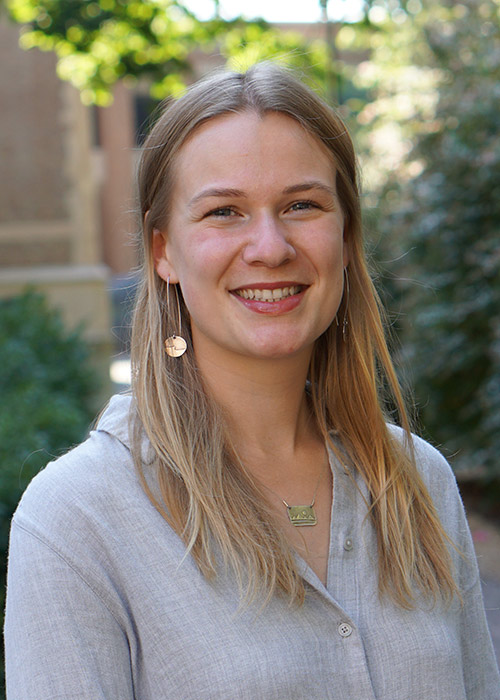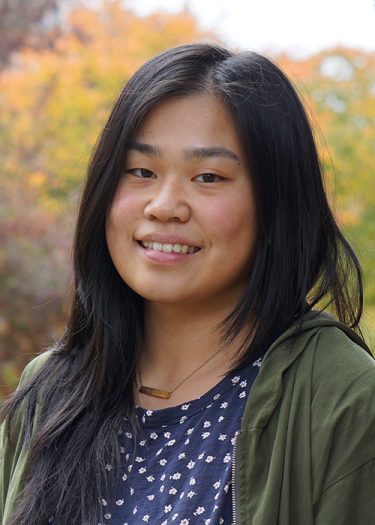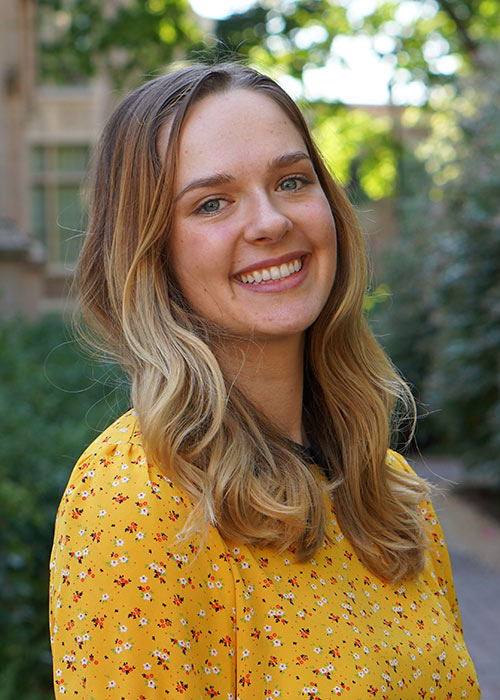Public health nutrition student practicums support city and state health initiatives
In recognition of National Nutrition Month®, we spotlight three Master of Public Health in Public Health Nutrition (MPH-Nutrition) students in the University of Washington School of Public Health who are working on local initiatives and programs in winter internships that relate to food security, food access, community health, and food sovereignty.
MPH-Nutrition second year students complete a practicum rotation which involves 7-10 weeks of working with a public health organization. With the help of their practicum faculty advisor, students are involved in selecting a project and organization.
Practicums for winter 2024 focus on a range of issues under the broad topic area of public health nutrition.
Projects include developing a process to collect public comments on how the farm bill can better support the Supplemental Nutrition Assistance Program (SNAP); developing guidance for contracting with Tribal organizations to support food sovereignty; increasing access to commissary kitchen spaces for small food producers; and describing the current state of structural inequities, food insecurity, food access, public health, and the availability of culturally relevant foods within the King County Food System.
Seattle-King County local food initiative policy refresh

Robyn Burnside is working with the King County Local Food Initiative (LFI), which originated in 2014. Ten years later, the LFI is launching a 2024 Refresh Project to address current priorities in King County’s local food system.
“We want to understand what are the barriers to food access and specifically local food access, who is impacted, and what can be improved,” said Burnside, who’s work for the group involves developing materials explaining the current state of local issues around food security, food access, community health, and the provision of culturally appropriate foods. Burnside’s project aims to support the decision-making processes of the LFI Refresh Project.
“I have found it rewarding to see behind the scenes how King County LFI works to ensure their programming is community-centered and equity focused,” said Burnside.
To date, the program has provided over $6 million in grant funding to help implement the LFI, including a diverse range of projects addressing access to working farmland, new market opportunities for farmers and food producers, climate resiliency, consumer education, and food access.
More about the program
Collecting public comments on how the farm bill can better support SNAP and developing a resource guide on how to contract with Tribal organizations to support Tribal food sovereignty

Christina Lin is working with the Washington State Department of Social and Health Services (DSHS) SNAP-Ed (Supplemental Nutrition Assistance Program Education) program. She is compiling public comments received on the 2023 Farm Bill for the Association of State Public Health Nutritionists (ASPHN).
Comments Lin is compiling represent the priorities of ASPHN sister organizations and urge the USDA to expand the reach and strengthen the implementation of federal nutrition programs.
“This internship with DSHS has been my first exposure to government work, and I have enjoyed seeing the behind-the-scenes of nutrition and government assistance programs,” said Lin.
“It has felt rewarding to be involved in a program that reaches many people, and the practicum experience has also provided opportunities for me to build skills in writing across different contexts, adapt to the government timelines, and learn about the complexities of administering and managing government programs.” said Lin.
Lin is also working on a resource guide for DSHS on recommendations for contracting with Tribally run organizations. DSHS is looking to contract with a Tribally run organization to understand how SNAP-Ed programing can better support indigenous food sovereignty.
“The guide provides recommendations on how DSHS may contract and partner with Tribal organizations in a way that ensures accessibility and that the needs of Tribal communities come first,” said Lin.
Increasing access to commercial kitchens for small food producers

Mary Fudge’s practicum is with Public Health – Seattle & King County and the City of Seattle. Her work is intended to increase access to permitted commissary kitchen spaces for small, local businesses so they can sell safely prepared food.
For King County’s local food system, shared-use (commissary) kitchens are critical infrastructure, meeting the needs of food businesses through technical assistance, safe operating spaces, specialized equipment, and cold storage access.
Growing the local food economy and supporting local food businesses to operate safely and sustainably is a King County initiative, however, local food businesses continue to face barriers to sustainable operation such as low access to kitchen spaces or high kitchen rental fees, high permitting costs, and low access to technical support.
To combat this, Fudge created an online interactive map of commissary kitchens in King County that will be published on the King County website this spring, aiming to increase awareness of existing local kitchen spaces and reduce barriers for unpermitted food vendors to access kitchens and operate safely.
“Working with staff at Public Health has been immensely rewarding,” said Fudge. “I have learned so much about how we do public health work in government settings from the wonderful folks working diligently to keep King County residents safe and healthy.”
Read more about past practicum projects in the Master of Public Health in Public Health Nutrition degree program.
March 13, 2024